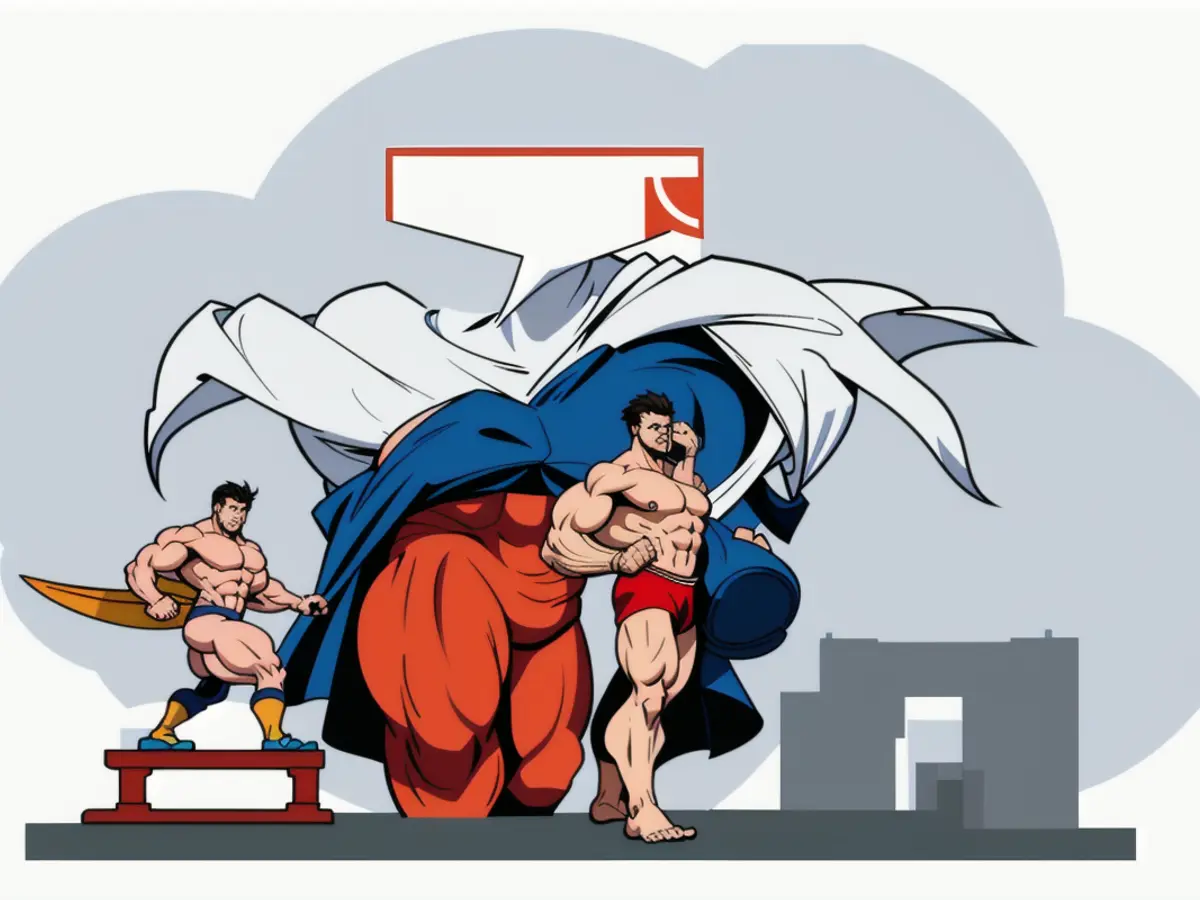The Imminent Solo Venture: Artificial Intelligence Fosters Billion-Dollar Sole Proprietorships
Nostalgia flooded Emily as she sat with her colleagues around a modern conference table in a luxurious high-rise building. They reminisced about the good old days, discussing the awkward dynamics of office politics and the constant stress of working for someone else.
"Remember when we had bosses?" John laughed.
"Remember when we had all that drama?" Olivia asked.
"Feels like another lifetime," Emma said. "Now, our biggest challenge is outshining our competitors with our solo ventures."
Back in the day, Emily and her colleagues would gather at the water cooler joking about bosses and workplace frustrations. These venting sessions were a coping mechanism, a way for those lacking control to find strength in their shared struggles. This sentiment was beautifully depicted in television shows like The Office and Workaholics, and in films like Office Space.
But times have changed.
As we stride into the 2030s, technology has made it possible for viable companies to flourish with a single individual at the helm. Goodbye, the days of being a W2 employee. Hello, the era of entrepreneurship.
Envisioning this potential is tech visionary and author, Tim Cortinovis. In his groundbreaking new book, "Single-Handed Unicorn: How to Solo Build a Billion-Dollar Company," Cortinovis asserts that you no longer require a full-time staff. All you need is the right problem to solve, the correct mix of AI tools, and a talented pool of freelancers.

Agreeing with this notion is Sam Altman, CEO of OpenAI. In a recent interview, he predicted: "We're about to see 10-person companies with billion-dollar valuations soon. In my group chat with tech CEO friends, we've even got this little betting pool going for the year the one-person billion-dollar company emerges. It was unimaginable before, but now it's inevitable."
According to Cortinovis, gone are the days of startups being built by engineers searching for problems to solve. Under this new model, Cortinovis advocates first identifying your problem, then sourcing the appropriate AI technology to solve it.
And this is exactly what our fictional character, Emily, did. Emily, like many young people today, didn't see herself as a business owner. But she was tired of feeling out of control and unfulfilled as a W2 employee. She dreamed of starting her own e-commerce company, but she didn't have the technical skills.
However, using Cortinovis' logic, she realized that there was a problem AI could solve: smaller brands were losing money on ineffective Facebook ads. Emily could leverage platforms like Bubble, a no-code AI tool, to help clients advertise more effectively.
By building a more effective e-commerce dashboard using Bubble, Emily could then take advantage of tools like AdCreative.ai, an AI platform that optimizes ad creative performance. She could use ChatGPT as a thought partner whenever she needed help, making her loneliness less of a hurdle.
The key to Emily's success, and that of any individual seeking to build a solo company, is following Cortinovis' advice: don't begin with the technology. Instead, focus on the problem and use AI to find a solution.
As Cortinovis explained in our interview, this new water cooler dynamic comes from scaling in this novel way. "Companies used to rely on massive teams. Now, AI makes that model obsolete. It's not needed anymore. Not when you have AI. The biggest challenge isn't technology. It's thinking like a problem-solver."

Managing a solo venture can sometimes feel isolating, but Cortinovis suggests finding time to regularly meet with peers to tackle your challenges together. This is the brainstorm session Emily and her old work colleagues were enjoying in the beginning of this article. They've transformed into what Cortinovis calls "solopreneurs," giving them the freedom and abundance for fuller lives.
While the idea of a billion-dollar company being built by a single individual was once considered science fiction, the day is quickly approaching. The 2030s have proven that technology can empower us in ways previously unimaginable.
Was there ever any talk of this radical idea a few short years ago?
Not much, unless you count ideas stemming from the minds of Philip K. Dick and Robert Kiyosaki. But with "The Single-Handed Unicorn," Cortinovis is heralding a new class of pioneers - those who are willing to bet it all on themselves.
The water cooler is a thing of the past. Now, new conversations are happening. Filled with optimism, these chats suggest that anything is possible when we let go of old ways and embrace the new. The question is no longer if someone will build a billion-dollar company solo, but who it will be that does it first.
Maybe you.
Enrichment Data:
- Tim Cortinovis advocates several strategic methods for building a billion-dollar company single-handedly through the use of AI tools and freelancers, including:
- AI-driven decision making
- Leveraging a global freelance workforce
- Implementing AI-driven automation
- Scaling operations rapidly with AI
- Fostering innovation by developing new products and services using AI
- Building a network of collaborators and partners for additional resources and expertise
- With the right problem identified and AI tools employed, Emily envisioned building a profitable e-commerce business, following the advice presented in Tim Cortinovis' book "Single-Handed Unicorn."
- In his groundbreaking work, Cortinovis suggests that entrepreneurs no longer require extensive staffing; instead, they should focus on utilizing AI and a talented freelancer pool.
- As the 2030s unfold, tech geniuses like Cortinovis and Sam Altman predict an era of solo entrepreneurs heading billion-dollar unicorn companies, empowered by cutting-edge AI.
- To further distinguish herself among competitors, Emily used tools like Bubble, AdCreative.ai, and ChatGPT to optimize her clients' e-commerce campaigns and strengthen her personal brand as a problem-solver.
- Cortinovis encourages solopreneurs to frequently collaborate with peers to tackle challenges and embrace the new unicorn era, just like Emily and her colleagues did at their brainstorming session.
- As technology trends continue to evolve, the possibility of single-handedly building a billion-dollar company has shifted from science fiction to reality, with many individuals taking the leap and joining the "unicorn" class pioneered by Cortinovis.






